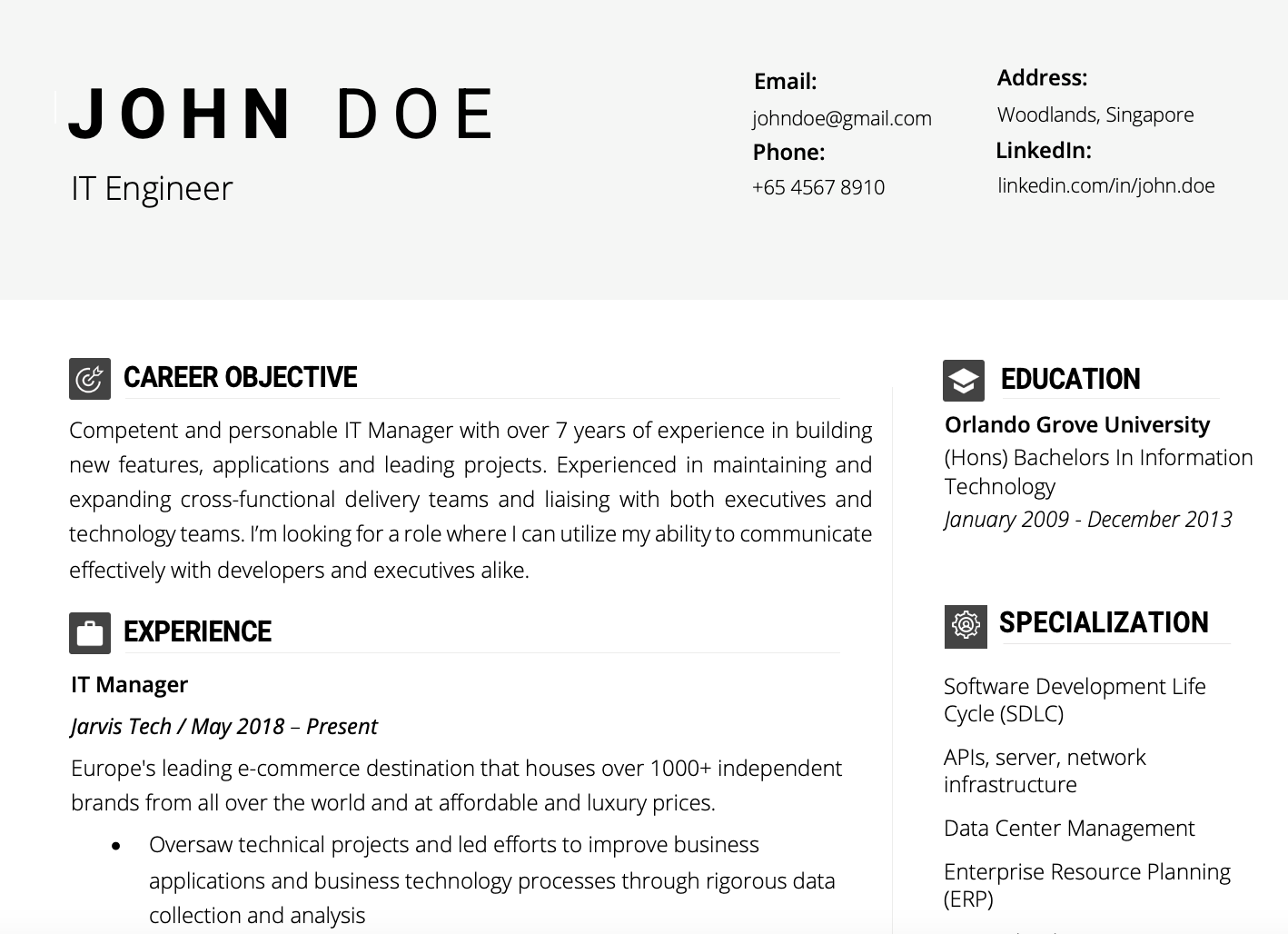
There's no industry that's growing in popularity and at an incredible pace the same way IT is anywhere in the world. This has resulted in an influx of IT professional roles opening up. If you’ve been having some trouble writing your resume to land one of these openings, we’ve got you covered. GRIT has broken down what you should and should not include in an IT manager’s resume!

Keep all of the information on one page for a well-received resume. If your career spans further than a decade, you can get away with a two-page resume. Keep in mind that resumes should be concise and targeted. This is the flow of a resume you should follow:
As for formatting, these are the basics you need to know:
When writing your summary, include a brief introduction into your professional background, qualifications, and motivation for advancing your career in this field. Give an example of why you enjoy what you do, or why you wish to improve and expand your talents.
Example: Competent and personable IT Manager with over 7 years of experience in building new features, applications and leading projects. Experienced in maintaining and expanding cross-functional delivery teams and liaising with both executives and technology teams. I’m looking for a role where I can utilise my ability to communicate effectively with developers and executives alike.
When drafting your work experience portion of your resume, keep two things in mind: bullet points and specific experience.
#1 Bullet Points
#2 Specific Experience
1) The Job Description: Ensure that the user requirements, criteria and scope are clearly defined for new projects. Projects are to be managed using Agile Working Model (AWM).
2) Your Experience: Updated user requirements, criteria and scope for every new project using Agile Working Model (AWM) to simplify and manage each project.
Even without any work experiences, you can still craft a great resume as someone starting their career journey, after all everyone has to start from somewhere. Here’s what you can include instead of full-time work experiences.
Action words in resumes are adjectives that are used to describe achievements and experiences. It's a terrific method to get the attention of the hiring manager and highlight your accomplishments. Words like these are great action words to consider when writing your resume:
Since a resume is short and to the point, here's what to include and what to leave out.
In a separate piece of paper you’ll want to include the following to boost your chances at being selected for an interview. If you have a website with the following showcased, feel free to include your site under the contact information section of your resume.
If you’ve been meaning to up your value as an IT manager, there are a handful of certificates you should look into regardless if you’re starting out or a veteran looking to sharpen your skills. Many are offered solely online with great time flexibility to work with your schedule and learning pace.
Here are some certificates worth considering:
Awards are a great reminder of the achievements you’ve accomplished for your company or with your industry.
A cover letter is a terrific complement to any resume because it allows you to go into greater detail about why you're the best fit for the job. Instead of sending out generic resumes to each potential employer with an open position, a cover letter demonstrates your want to work for the company you're applying to. The structure of your cover letter matters as much as the content itself.
Make sure the font size and spacing are easily readable. When describing your successes and experiences, utilise action words to emphasise your relevant talents to the position you're wanting to be recruited for.
Need a few more details? Check out our in depth guides on writing a resume, CV and cover letter. All guides are suitable for any profession with tips for careers across the board.